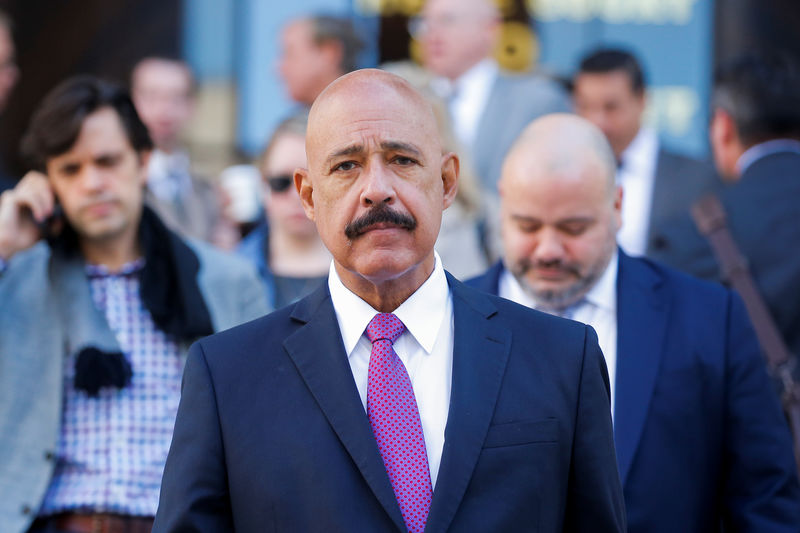By Brendan Pierson
NEW YORK (Reuters) - Former Exxon Mobil Corp (NYSE:XOM) Chief Executive Rex Tillerson is expected to take the stand on Wednesday in a closely watched civil lawsuit accusing the company of hiding the true cost of climate change from investors.
The case in Manhattan state court, which kicked off last week, is the first of several lawsuits pending against major oil companies related to climate change to go to trial.
The lawsuit, brought by New York's attorney general, alleges that Exxon falsely told investors it had properly evaluated the impact of future climate regulations on its business using a “proxy cost” of up to $80 per ton of carbon emissions, but internally used figures as low as $40 per ton or none at all.
It says Exxon caused investors to lose up to $1.6 billion.
Exxon has assailed the claims as false and politically motivated.
In his opening statement, Theodore Wells, a lawyer for the company, said that after Tillerson became chief executive in 2006, the company put in place a “robust system” to manage the risk of increasing climate change. Tillerson served as Exxon CEO from 2006 to 2017, and U.S. secretary of state under President Donald Trump from 2017 to 2018.
Wells said the $80 per ton proxy cost represented a "global," "macro-level" assessment of the cost, while lower figures, known as greenhouse gas or GHG costs, were used for particular capital projects depending on circumstances. He said Exxon never told investors the two numbers were the same.
Last Thursday, just two days after the New York trial began, Massachusetts filed a similar lawsuit accusing Exxon of misleading investors and consumers for decades about the role fossil fuels play in climate change.
Both Massachusetts and New York began investigating Exxon after news reports in 2015 saying that its own scientists had determined that fossil fuel combustion must be reduced to mitigate the impact of climate change.
Those reports, by InsideClimate News and the Los Angeles Times, were based on documents from the 1970s and 1980s. Exxon said the documents were not inconsistent with its public positions.
Exxon and other oil companies including BP (LON:BP) Plc, Chevron Corp (NYSE:CVX) and Royal Dutch Shell (LON:RDSa) Plc face lawsuits by cities and counties across the United States seeking funds to pay for seawalls and other infrastructure to guard against rising sea levels brought on by climate change.

The companies have said in court filings that they cannot be held liable for climate change.